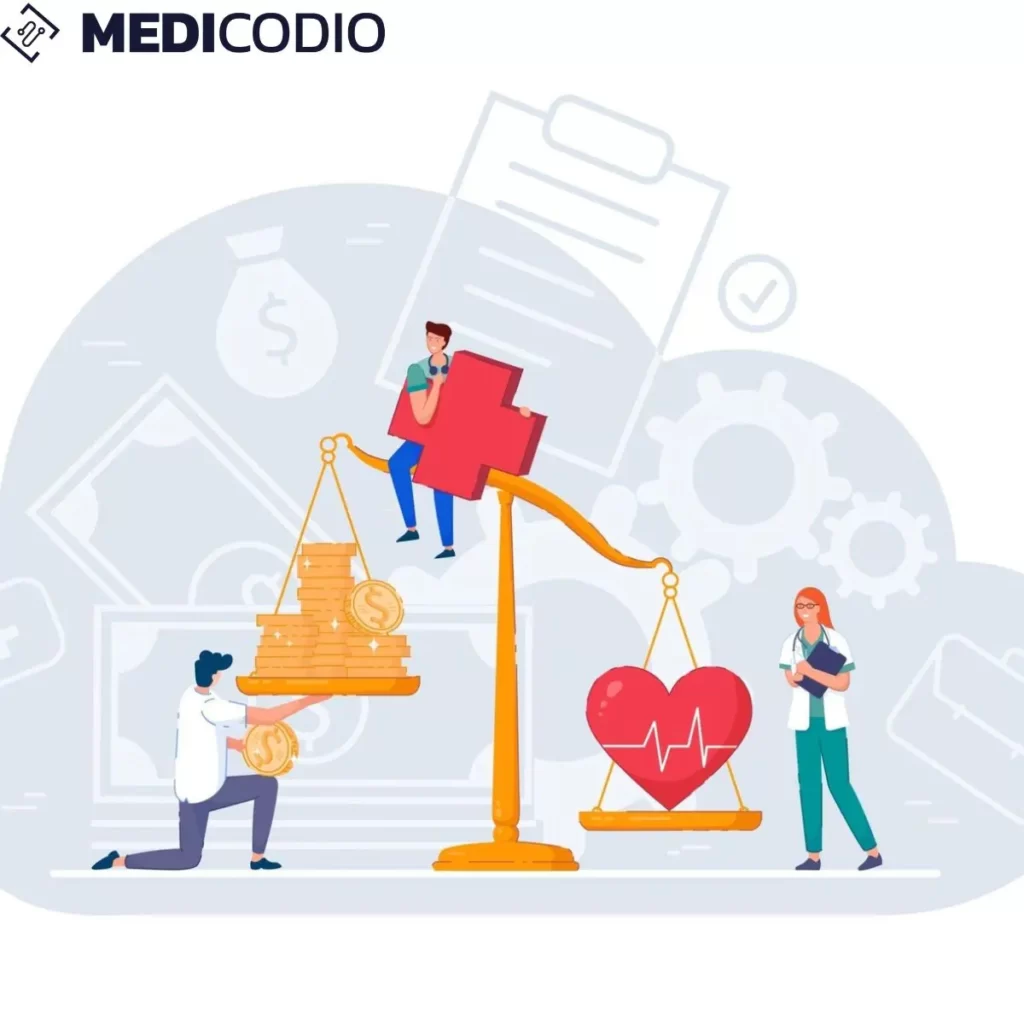The ever-evolving advancements in technology continue to shape the healthcare industry, enhancing patient care, streamlining processes, and improving financial outcomes. One such breakthrough that holds immense promise is the integration of Artificial Intelligence (AI) in medical coding. By using the power of deep learning, machine learning, and NLP, AI is set to revolutionize the healthcare landscape. Despite the numerous benefits and potential of AI in medical coding, several RCM leaders are holding back from adopting this technology.
This powerful tool has the potential to revolutionize the Revenue Cycle Management (RCM) process, benefiting healthcare organizations in numerous ways. In this blog post, we will explore what hospitals and RCM leaders need to know about AI and its impact on medical coding.
Here’s what you’ll miss out on if you delay the adoption of AI in medical coding!
- Enhanced Accuracy and Efficiency: Medical coding is a critical component of RCM, ensuring proper documentation and billing. Traditional coding methods are time-consuming, prone to errors, and heavily reliant on human expertise. A recent study revealed 93% of healthcare enterprises are concerned about process inefficiencies. However, AI-powered medical coding tools have the capability to analyze vast amounts of data quickly and accurately, significantly reducing coding errors and improving efficiency. By automating the coding process, hospitals can minimize the risk of coding-related denials, optimize reimbursement, and ultimately save valuable time and resources.
- Increased Cost Savings and Revenue: According to the study 92% of healthcare enterprises are worried about thinning margins. Labor expenses are projected to increase by $86 billion, while non-labor expenses are projected to increase by $49 billion. Implementing automated coding using AI technology can address the challenges of labor costs and denials reduction in the revenue cycle. With medical coding AI, health systems can automate a significant portion of encounters, resulting in cost savings. Additionally, automated medical coding enhances revenue capture by assigning acuity and identifying reimbursable procedures more accurately, leading to an increase in relative value units (RVUs) per encounter. Overall, the implementation of automated coding can result in an increase in operating margins and substantial financial benefits for health systems.
- Continuous Learning and Adaptability: One of the remarkable features of AI in healthcare billing and coding is its ability to learn and adapt over time. AI-powered medical coding tools can continuously update their knowledge base by analyzing patterns and trends in coding and documentation practices. This constant learning process ensures that the AI system remains up to date with the latest coding guidelines, regulations, and best practices. As a result, hospitals can confidently rely on AI tools to accurately assign appropriate codes, reducing compliance risks and staying current with evolving industry standards.
- Support for Complex Coding Scenarios: Medical coding often involves intricate cases with complex documentation requirements. AI-driven coding tools can assist hospitals in tackling such scenarios with precision. By leveraging Natural Language Processing (NLP) algorithms, AI can analyze medical records and extract relevant information, deciphering complex diagnoses, procedures, and treatments. This advanced technology helps coders accurately assign codes, leading to improved documentation quality, increased coding specificity, and optimized reimbursement.
- Efficient Resource Utilization: Implementing AI in medical coding can also result in optimal resource allocation within hospitals. By automating the coding process, AI tools free up coding staff’s time, allowing them to focus on more complex and specialized cases that require human expertise. This redistribution of resources leads to greater productivity, reduced staff burnout, and improved overall operational efficiency.
- Continuous Compliance Monitoring: Compliance with coding guidelines and regulations is crucial for hospitals to avoid penalties and maintain financial health. AI-powered medical coding tools can play a vital role in ensuring compliance by providing real-time feedback and alerts. They can flag potential coding errors, documentation inconsistencies, and compliance risks, enabling hospitals to rectify issues proactively. By incorporating AI into their coding workflows, hospitals can minimize compliance vulnerabilities, strengthen audits, and enhance revenue integrity.
Conclusion:
As hospitals and RCM leaders navigate the complexities of the healthcare landscape, embracing AI-powered medical coding tools presents an incredible opportunity for transformation. By leveraging the potential of AI, hospitals can achieve higher accuracy, efficiency, and compliance in their coding processes. With continuous learning capabilities, support for complex coding scenarios, and efficient resource utilization, AI brings a multitude of benefits to the table. As we move forward, integrating AI into medical coding practices will undoubtedly shape the future of RCM, paving the way for improved patient outcomes, streamlined operations, and sustainable financial success.
Try it for yourself!
Experience the Power of AI in medical coding with CODIO’s Free 30-day trial!
Sign up here, right now: https://lnkd.in/dYniNRke





